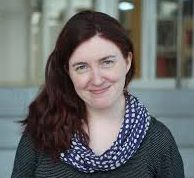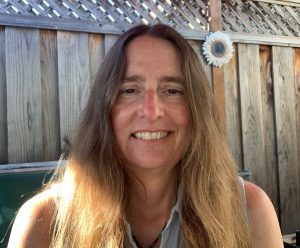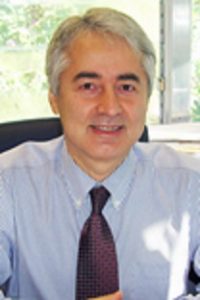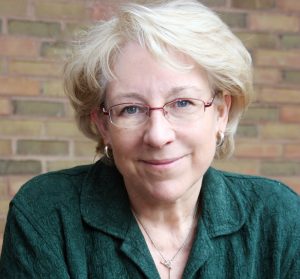Executive Director, Eliza Jane Reilly
eliza.reilly@ncsce.net
Eliza Jane Reilly has over two decades of experience in the design and implementation of programs to advance curriculum, academic leadership and faculty development. Her past positions include Executive Director of the American Conference of Academic Deans (ACAD) and Director of Programs at the Association of American Colleges and Universities (AAC&U), where she was the first Program Director for the SENCER initiative. From 2003-2013 Eliza focused on campus-based faculty development and interdisciplinary curricula through the directorship of the Center for Liberal Arts and Society at Franklin & Marshall College, where she also had a faculty appointment in American Studies. In 2008 Eliza was appointed Director of the Phillips Museum at Franklin & Marshall. With a .5M grant from the Andrew W. Mellon Foundation, she developed exhibition and faculty development programs that engaged faculty and students from the arts, humanities, sciences, and social sciences and made the campus museum a laboratory for innovative curriculum. Eliza holds a MA in the History of Art and a Ph.D. in American History from Rutgers University. She has been a founder and Senior Scholar in SENCER and the National Center for Science and Civic Engagement’s other funded initiatives since 2001, becoming Executive Director in 2015. From 2015-2020 she had a concurrent appointment as a Research Professor in the Department of Technology and Society at Stony Brook University and is currently a Sr. Fellow at the Institute for Learning Innovation. Eliza currently serves as the General Editor of the SENCER Models, publisher of the journal Science Education and Civic Engagement: An International Journal, an advisory board member of SENCER-ISE. She has served as PI or co-PI on grants from NSF, NEH, and the Wm. M. Keck Foundation. In 2018 Eliza was elected a Fellow of the American Association for the Advancement of Science (Division Q) for her contributions to science education and civic engagement.
 Deputy Director, Davida Smyth
Deputy Director, Davida Smyth
davida.smyth@ncsce.net
Davida S. Smyth is Associate Professor of Natural Sciences in the Department of Natural Sciences and Mathematics at Eugene Lang College of Liberal Arts at The New School. She obtained her Ph.D. in Microbiology from the University of Dublin, Trinity College, Ireland, and completed her postdoctoral training at New York Medical College, the University of Mississippi Medical Center, and New York University. She has served as Associate Professor and Chairperson of the Department of Natural Sciences in Mercy College’s School of Health and Natural Sciences, where she taught environmental science, introductory biology, microbiology, and genetics and developed the CURE course “Microbiology of Urban Spaces“. Previously, she was an Assistant Research Scientist in the Richard Novick lab at NYU Langone Medical Center and a Lecturer for the online Master’s in Bioinformatics program at NYU Tandon School of Engineering. Prior to joining Mercy, Dr. Smyth was Assistant Professor of Biology at New York City College of Technology (NYCCT) where she coordinated the microbiology course, established and ran the internship course for biomedical informatics, and acted as program coordinator for biomedical informatics (in 2015). Dr. Smyth is on the Editorial Board of Science and Civic Engagement: An International Journal, serves as a Senior SENCER leadership fellow and she guides SENCER and non-SENCER faculty, as well as K12 teachers, to incorporate SENCER ideals in their classrooms. In 2018, she was awarded the Mercy College Excellence in Teaching Award. In 2018 she became a PALM Mentor and in 2019 she became a PULSE Fellow. She is co-PI of the NSF Funded REMNet (Research Experiences in Microbiomes) and has served as an external consultant to the Adjunct Academy of Mercy College’s Inclusive Excellence Project as well as Activity Director and then advisor to Mercy College’s Peer-Led Team Learning Program.
 Director of SENCER Centers of Innovation and Regional Engagement, Amy Shachter
Director of SENCER Centers of Innovation and Regional Engagement, Amy Shachter
Amy Shachter has served in a number of academic leadership roles ranging from center director, associate dean, summer dean to provost-level administrative appointments. She has experience in the development of new programs, academic majors, and minors as well as University-wide centers with special expertise in sustainability education, undergraduate research programs as well as multi-department major STEM strategies. Her work to improve undergraduate education has been supported by the Howard Hughes Medical Institute, the National Science Foundation, W.M. Keck Foundation, Fletcher Jones Foundation, and the Camille and Henry Dreyfus Foundation.
 Director of Partnerships, Jay Labov
Director of Partnerships, Jay Labov
Before retiring in November 2018, Jay Labov served as a member of the staff of the National Academies of Sciences, Engineering, and Medicine for 23 years, most recently serving as Senior Advisor for Education and Communication since 2008. He directed or contributed to some 30 National Academies reports focusing on undergraduate education, teacher education, advanced study for high school students, K-8 education, and international education. He served as Director of the National Academies’ Teacher Advisory Council and was Deputy Director for the Academy's Center for Education. He directed a committee of the NAS and the Institute of Medicine (now the Academy of Medicine) that authored Science, Evolution, and Creationism and oversaw the National Academy of Sciences' efforts to confront challenges to teaching evolution in the nation’s public schools. He coordinated efforts at the Academies to work with professional societies on education issues. He also oversaw work on improving education in the life sciences under the aegis of the Academy’s Board on Life Sciences.
Dr. Labov is an organismal biologist by training. Prior to accepting his position at the National Academies in 1997, he spent 18 years on the biology faculty at Colby College (Maine). His many honors and awards include appointment as a Kellogg National Fellow, a Fellow in Education of the American Association for the Advancement of Science, a Woodrow Wilson Visiting Fellow, and past chair for 2016 of the Education Section of the American Association for the Advancement of Science (AAAS). In 2014 he was named a Lifetime Honorary Member by the National Association of Biology Teachers. In 2020 Jay received the Wm. E. Bennett Award from NCSCE for his distinguished contributions to citizen science and science education.
Director of New STEM Curricular Pathways, Theo Koupelis

Theo Koupelis served for fifteen years as a faculty member at the University of Wisconsin-Marathon, where he taught physics, astronomy, and a number of interdisciplinary courses that he created. He continued teaching while serving as an administrator for fifteen years as Associate Dean and then Dean at Florida South Western State College and as Dean at Broward College. He earned his Ph.D. in Physics and Astronomy from the University of Rochester and did his postdoctoral work at the University of Alabama. He is the author of the astronomy textbook “In Quest of the Universe” and his published research is in the area of astrophysical jets. He served twice as President of the Wisconsin Association of Physics Teachers and on a number of committees of the American Association of Physics Teachers and he has been a Board member of the Midwest Institute for International and Intercultural Education since 2002. Theo is a founding participant in SENCER and authored one of the four inaugural SENCER Models "Science, Society, and Global Catastrophes."
Theo has been involved in outreach efforts throughout his career, from serving as a science advisor to K-12 student organizations and clubs to creating a teaching alliance that involved K-12 teachers and his college, and he served for three years (2004-2007) as member of the Central Wisconsin PK-18 Council. In his most recent administrative role he led the effort to revamp the introductory math curriculum by simplifying and making optional the developmental math curriculum and expanding on the co-requisite model, which led to an almost doubling of the rate of students completing their math requirements. As Director of New STEM Curricular Pathways, Theo will support retention and engagement efforts by helping faculty and administrators remove unnecessary curricular barriers to success and streamlining innovative pathways for STEM learning.
Contact
NCSCE is national 501c3 organization and our programs, regional centers, and leadership are distributed throughout the United States.
ncsce.info@gmail.com
Mailing address:
NCSCE
114 Post Street
Saugerties, NY 12477

